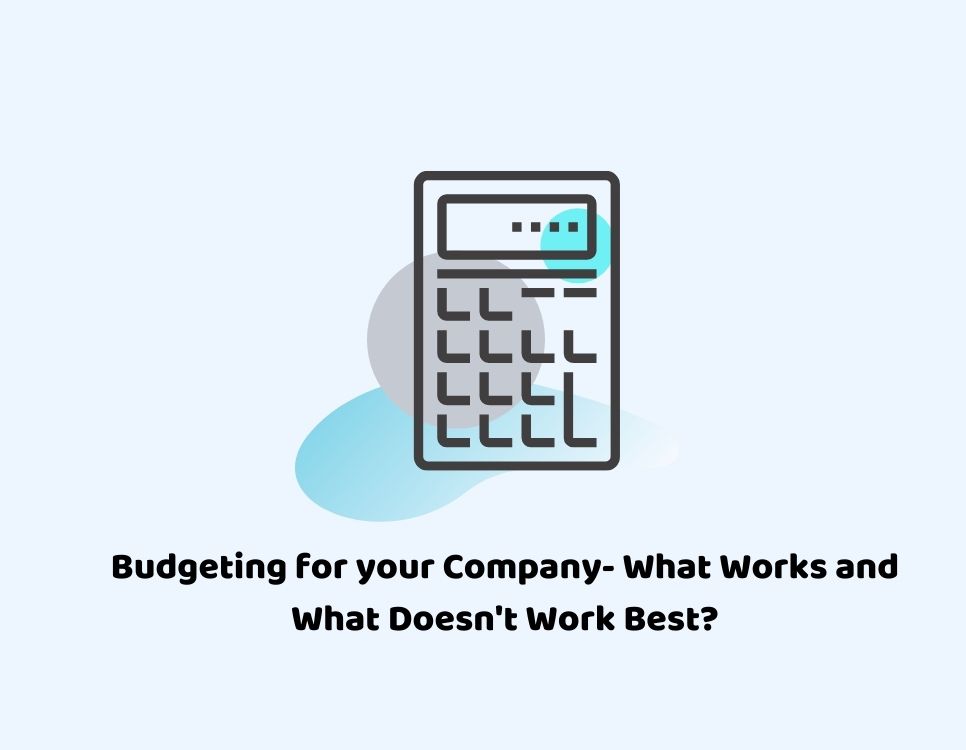
27/01/2021Budgets & Other , Business Growth Ideas
It cannot be emphasised enough how important budgeting is for your business. You don’t require any budgeting company to help you out on this, budgeting can be done very easily if you have the right guidance and assistance. What is the budget? A budget is an estimate of revenue and expenditures for a given future period of time and is typically collected on a periodic basis and re-evaluated. Some businesses come up short in the primary year of trading on the grounds as they are uncertain about cashflow and budgeting. Another issue a few organizations face is that they have sufficient money yet are apportioning it to all some wrong spots, which means it is being utilized ineffectively and not working for the business.
In another company, planning what to spend and where can be precarious where you have no proof of what works and what doesn’t. How might you plan and budget when you don’t practically have the foggiest idea what’s in store for your cash?
The budgeting process for a company is a cycle whereby future pay and expenditure are chosen to smooth out the consumption cycle. Other significant exercises in the budgeting process incorporate things, for example, forecasting, monitoring, controlling and assessing the financial objectives. Still, wondering why is budgeting important for a company? Keep reading as we tell you the advantages of budgeting with what works and what doesn’t.
Be strategic
While some business start with nothing with expectations of developing, others start with speculation and desire to make all the difference. Arrange what to budget and where to be precarious in another business where you don’t have proof of what works and what doesn’t.
The answer for this is straightforward – you need to prepare and strategise. Take a gander at the long haul and don’t get excessively energized when any speculation cash hits your bank. Think in the long term and how the cash can be used wisely.
Don’t underestimate the initial start-up expenses. The company has started and has clients on the books with whom it takes care of work, this is a good start. The organization pays out on items such as machinery and staffing. And cash from the job it does cannot reach the bank for at least 30 – 90 days from the date of completion of the work. If the organization does not have a timely client? Will it actually have the option to endure?
What new entrepreneurs need to think about is the way that any instalments coming into the business might be far off yet. So, they’re supposed to budget for the main things and stick to any spending, so they don’t blow through all the money inside the business.
Design out carefully, and search for extra venture if necessary. It’s acceptable if the business has high expectations of having customers paying when expected however you should, in any case, pray fervently yet plan for the most exceedingly terrible.
Ongoing costs
Do you realize what amount of cash is required on a month-to-month basis to make a big difference for your business? This is a region that a few organizations flop on. They figure out how to factor in the enormous costs, for example, lease and staff compensation, yet can disregard things like the telephone line, broadband, protection and fixed. These little expenses can long add up.
This risk can be limited with cautious arranging, investigate everything in your business and all that you want to achieve, what expenses are included; can any of these be diminished? Have you considered every single detail and cost?
Possibility plan
How might you cope if something turned out badly? It appears to be rapid and truly developing at the moment you start a company. However, what occurs if your image doesn’t take off or a customer chooses not to utilise your administrations and go somewhere else? Your business needs to have plans set up for if the sudden occurs, for example, an issue in one of your items meaning it will require a further turn of events.
There are just two ways that you can plan for this:
- Give your customer realistic time spans – additionally, attempt to consider any issues with the item/administration which could postpone it
- Give reasonable expectations to your customer – do not guarantee the world for them and convey a stone. In addition, consider placing some disaster cash aside in the organization so that if anything does not turn out as you might hope, you can dive into it.
Budgeting your company would definitely benefit your company and we are just a message away if you need any help!

